News
Proposed national economic conference in perspectives
Published
10 years agoon
By
Olu Emmanuel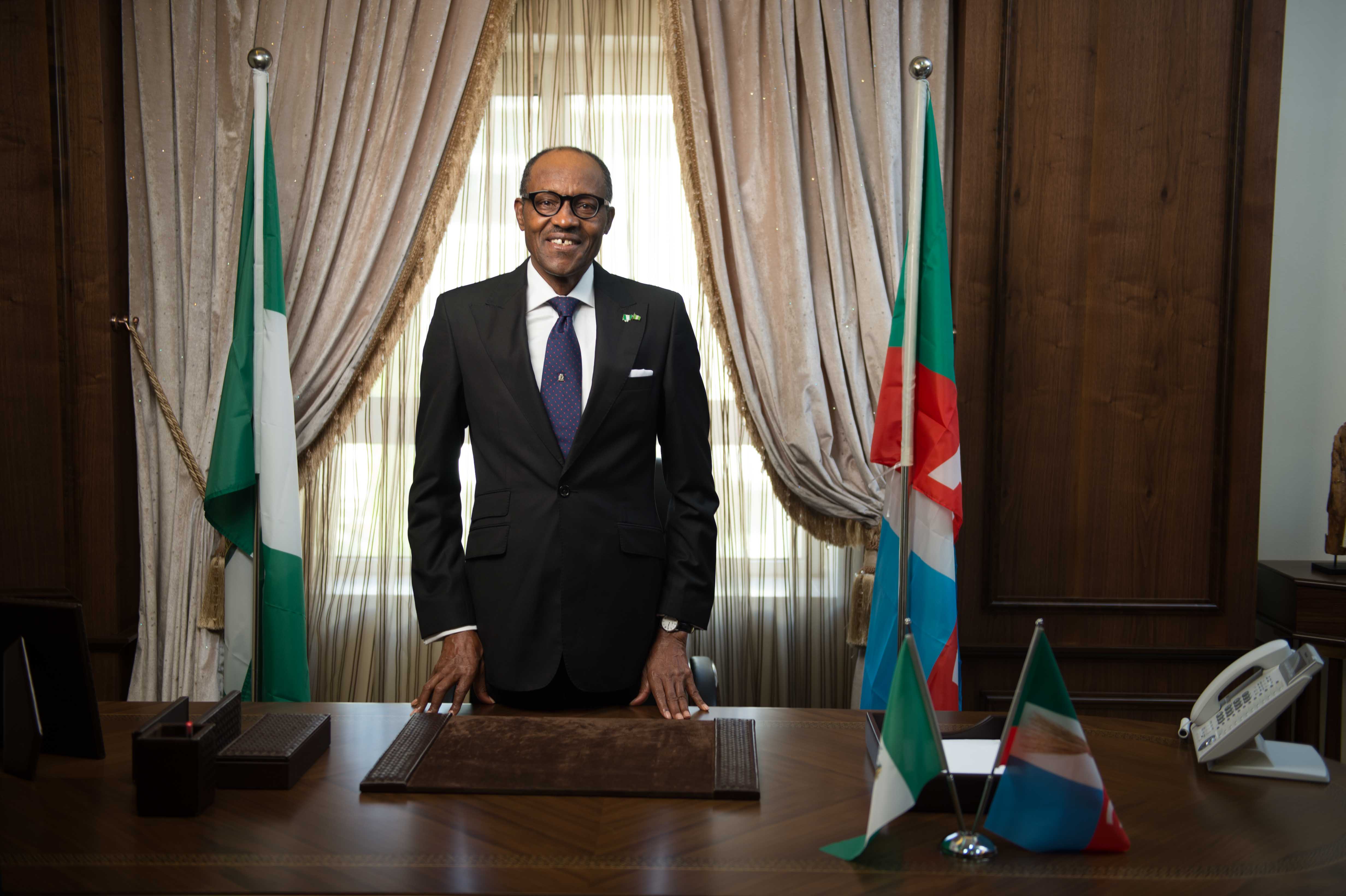
• Government interlocked at crossroads of change
By SUNDAY ODIBASHI
THERE are indications that President Muhammadu Buhari may be going through most turbulent time of managing the socio-economic crises in the country. The All Progressives Congress (APC)-controlled Federal Government is seemingly handicapped by the global crisis of fall in the price of crude oil in the international market, culminating into decline in revenue generation to finance public policies. The situation is further exacerbated by the quantum of fund lost to corruption from the public treasury.
Apparently, the APC change mantra is, hypothetically, at crossroads of realisation. The government has been contending with plethora of downward economic and social indicators. The country has continued to be plagued with asymmetrically skewed exchange rate of the naira in favour of foreign currencies, perennial petrol scarcity, rising crime rate, increasing unemployment, import dependent economy, recurring inter-ehtnic mutual suspicions and animosities, etc. These inherited socio-economic crises are rapidly threatening the change APC promised Nigerians.
Perhaps, these retrogressive economic and social indicators compelled Professor Wole Soyinka to advocate for convening of a national economic conference by President Buhari in search of feasible solutions or policy options on the current crises in the economy.
Several stakeholders in the polity have expressed divergent views on the desideratum of a national economic conference. Some argued that conference resolutions are seldom implemented by the Federal Government.
ALSO SEE: State of the Nation: Emergency Economic Conference
Meanwhile, President Buhari has, since assuming office on May 29, 2015, demonstrated remarkable leadership traits germane to stimulate socio-economic change. The President has shown leadership character, which several stakeholders in the polity labeled “body language” at the inchoate stage of the APC-Government. The President’s leadership character profoundly reflected in the fight against corruption. Accordingly, the era of complaints about “political will” to implement policies has gone.
There was high expectation that the “body language” phenomenon would precipitate urgent process of value re-orientation to bring new culture or discipline into public institutions and the governance system. Again, certain occurrences like the Treasury Single Account (TSA) controversy, the 2016 budget mix-up, absence of fiscal policy, etc, proved the expectation to the contrary. However, Nigerians are still waiting for President’s punitive actions on the much celebrated “budget mafia” suspected to have sabotaged the first annual budget ever prepared and presented by the APC-Federal Government as a way of instilling discipline in government.
Some stakeholders have expressed the belief that subscribing to national economic conference reflects a covert admission of a Federal Cabinet that has failed in articulating public policies and dealing with the current challenges in the country. Albeit, the conference will provide platform for articulation of broad ideas or cross-fertilization of ideas; also encourage wider participation of non-state actors in governance; it could as well open leakages for diversion of public funds.
Some have articulated that President Buhari needs a ‘cracking’ team to work on the economy for effective change to take place. Thus, they argued that the continuous instability of the economy is indicative of the need for cabinet reshuffle or change of ministers.
This argument seems apposite since the President has provided leadership that stands firm and insists that what is right must be done; the ministers are required to provide “good judgment” on public policy options to complement the leadership “character” of the President. This, perhaps, appears to be the missing link in the Buhari administration.
On appointment of ministers, Alhaji Lai Mohammed, Minister of Information and Culture, distinguished himself, holding consultative meetings with relevant stakeholders, both in the public and private sectors, under his jurisdiction, exchanged ideas and solicited their cooperation in projecting the change agenda of the present administration.
Several other ministers did not consider the consultation option with stakeholders necessary. Many of the ministers brought their personal predilections and idiosyncrasies into governance.
ALSO SEE: Umeh urges Buhari to implement report of 2014 national conference
Invariably, what has become prominent in the current administration is the disconnect of policy articulation from realities or ecology of the country’s economy. While President Buhari is typically expressing belief or preference for domestic development process that will promote the domestic economy, most of the ministers show penchant for imperial or cosmetic policies that promote foreign economies. Thus, the President and the ministers seem not to be working on the same template of both development and change.
It may be considered too early, ceteris paribus, for the APC-government to panic over the prevalent economic crises or the challenges of governance at this stage of the administration. Studies have shown that, generally, change is not value-free. At the early stage of change, certain variables are either held constant, thus, the system remains static for a while; or relatively fluctuates, making the system encounter marginal downward change. These imply that the status quo is in the process of being dismantled for new development process. The system is believed to be responding to new stimulus in the economy.
Accordingly, summoning a national economic conference is synonymous with doubting the capabilities of the ministers. Perhaps, each minister may be required to, first, do what Lai Mohammed did; hold consultation meetings with stakeholders in their respective sectors. These are the same stakeholders expected at the economic summit. Thereafter, there may be consideration for overall ministerial retreat to harmonise policy options articulated for the various ministries, departments and agencies (MDAs) to eliminate disjoints and initiate new economic stimulus that would reactivate the production capacity of the economy. Conference may be diversionary.
More so, just like President Buhari has challenged the university intellectuals to provide roadmap for diversification of the economy, Nigerian Institute of Social and Economic Research (NISER) and other similar research institute in the country could be encouraged to join the league in providing solutions, particularly, to the weak production capacity of the country’s economy.
You may like


HURIWA slams EFCC as Tinubu’s attack dog, Says Tambuwal’s arrest is intimidation tactic against opposition


Tension rocks ADC coalition as EFCC targets key members over corruption probes
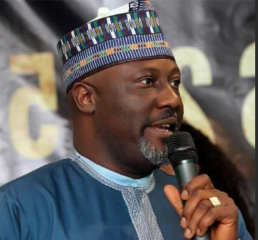

Dino Melaye exits PDP, calls it an APC ‘Parastatal’
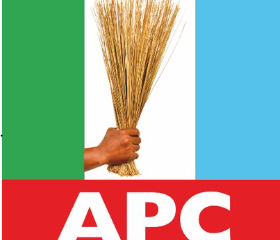

APC Chieftain, Eze Chukwuemeka, Accuses Tinubu of “Electoral Fraud” Plot for 2027
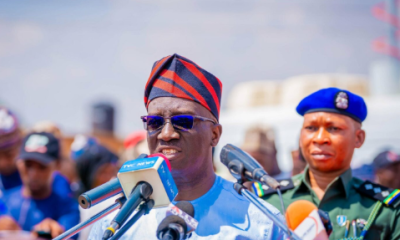

Edo PDP accuses Gov. Okpebholo of taking false credit for Benin-Asaba Expressway Project
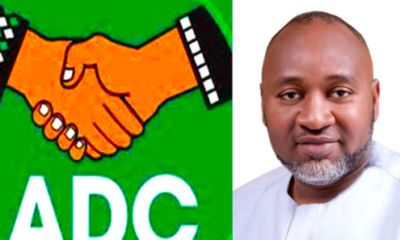

Revealed: ADC founder Nwosu accuses Kachikwu of paid coalition sabotage
Trending

 Entertainment1 week ago
Entertainment1 week agoSinger Simi sparks debate after calling for death penalty for rapists

 Business1 week ago
Business1 week agoNaira mixed across markets as official window dips, parallel market strengthens

 Health1 week ago
Health1 week agoStudy suggests possible link between cell tower radiation and rising diabetes cases

 Business1 week ago
Business1 week agoNaira hits N1,337 against Dollar amid positive market sentiment

 Latest1 week ago
Latest1 week agoADC blasts APC over electoral act amendment, warns against ‘democratic backsliding’

 Entertainment1 week ago
Entertainment1 week agoTems, Burna Boy set new African record with most entries on Billboard hot 100

 Football1 week ago
Football1 week agoUCL Playoff: Gordon scores four as Newcastle thrash Qarabağ 6-1

 Entertainment5 days ago
Entertainment5 days agoSinger Simi faces backlash after TikToker admits to false rape allegation

